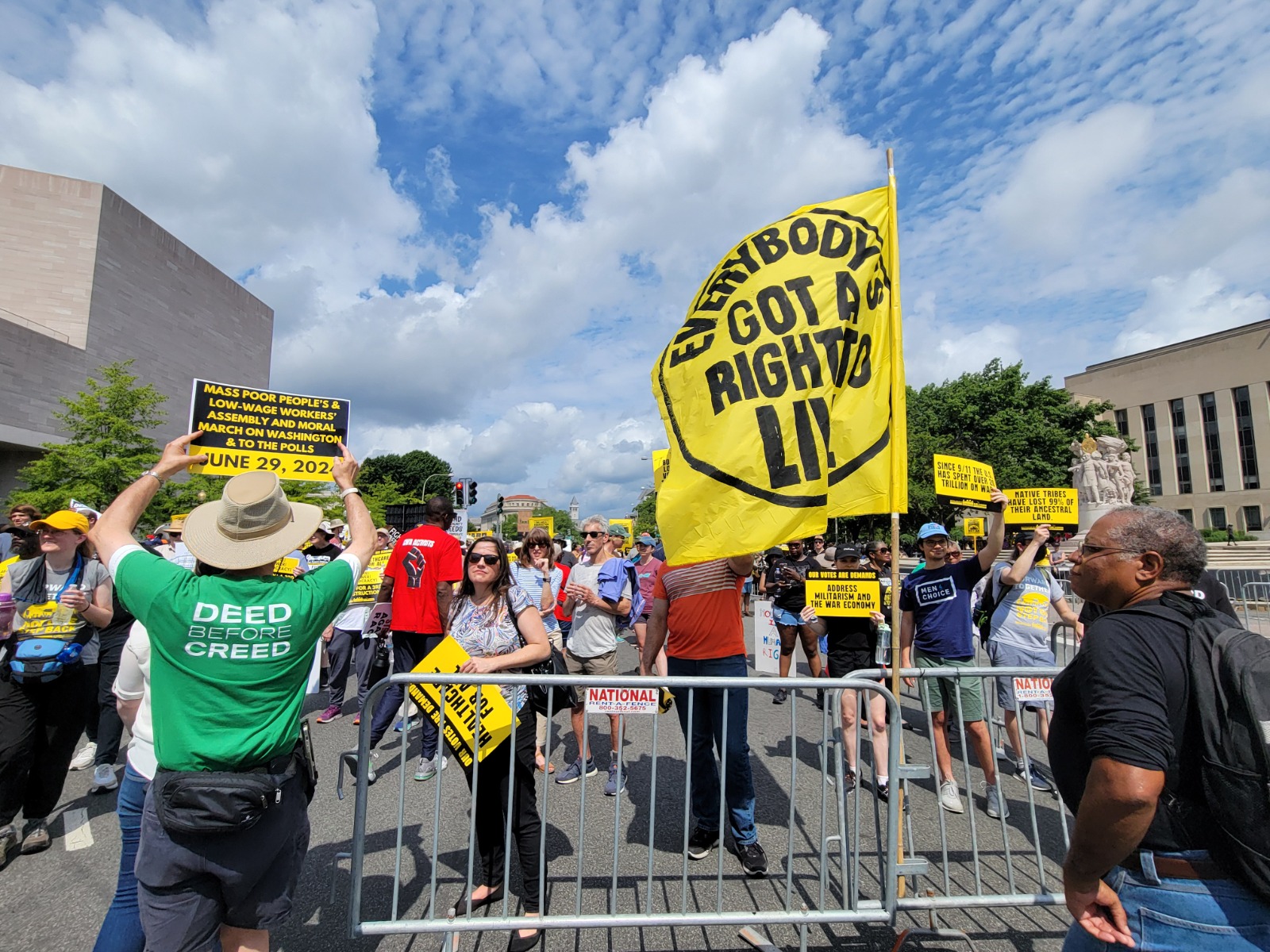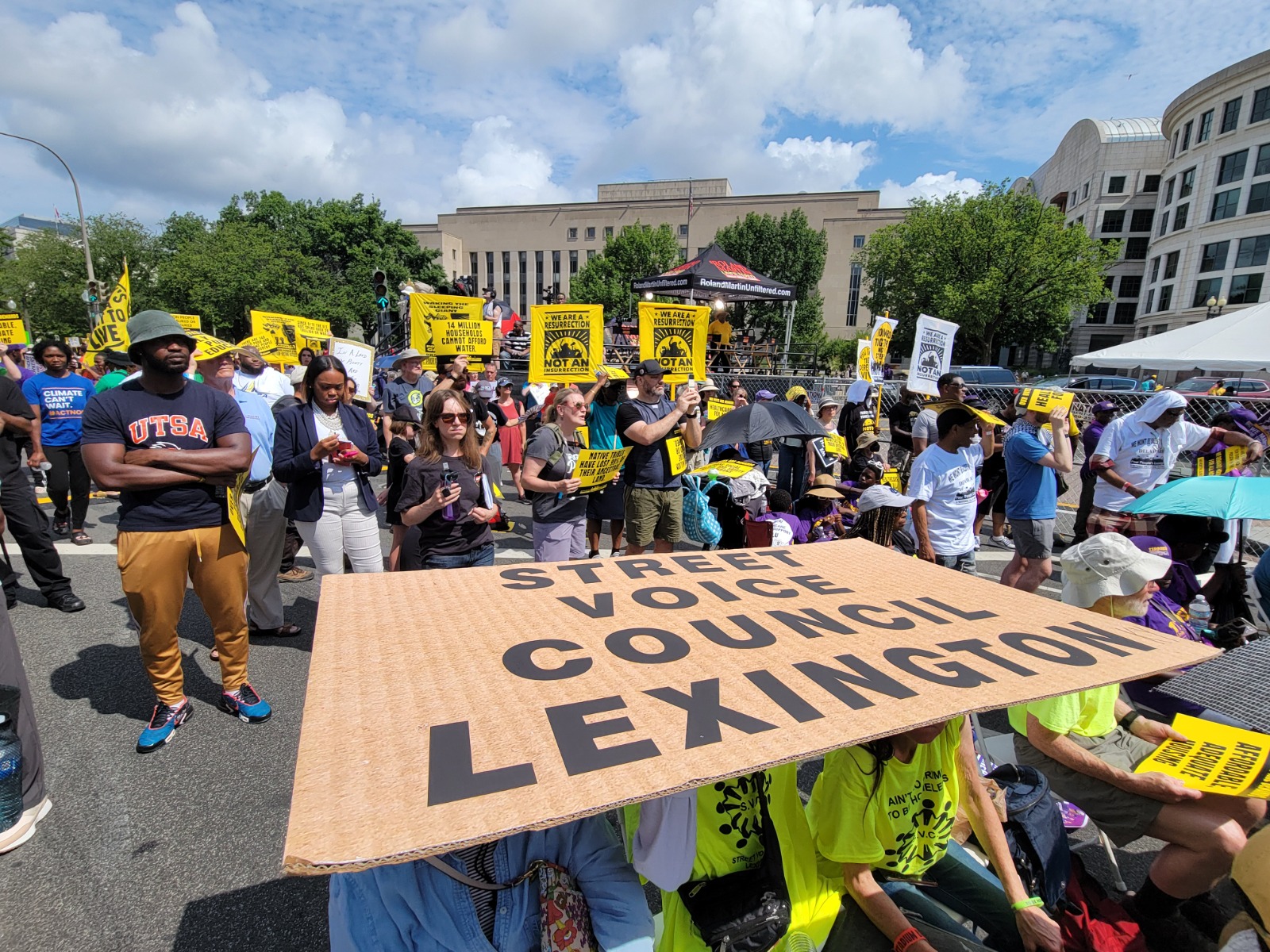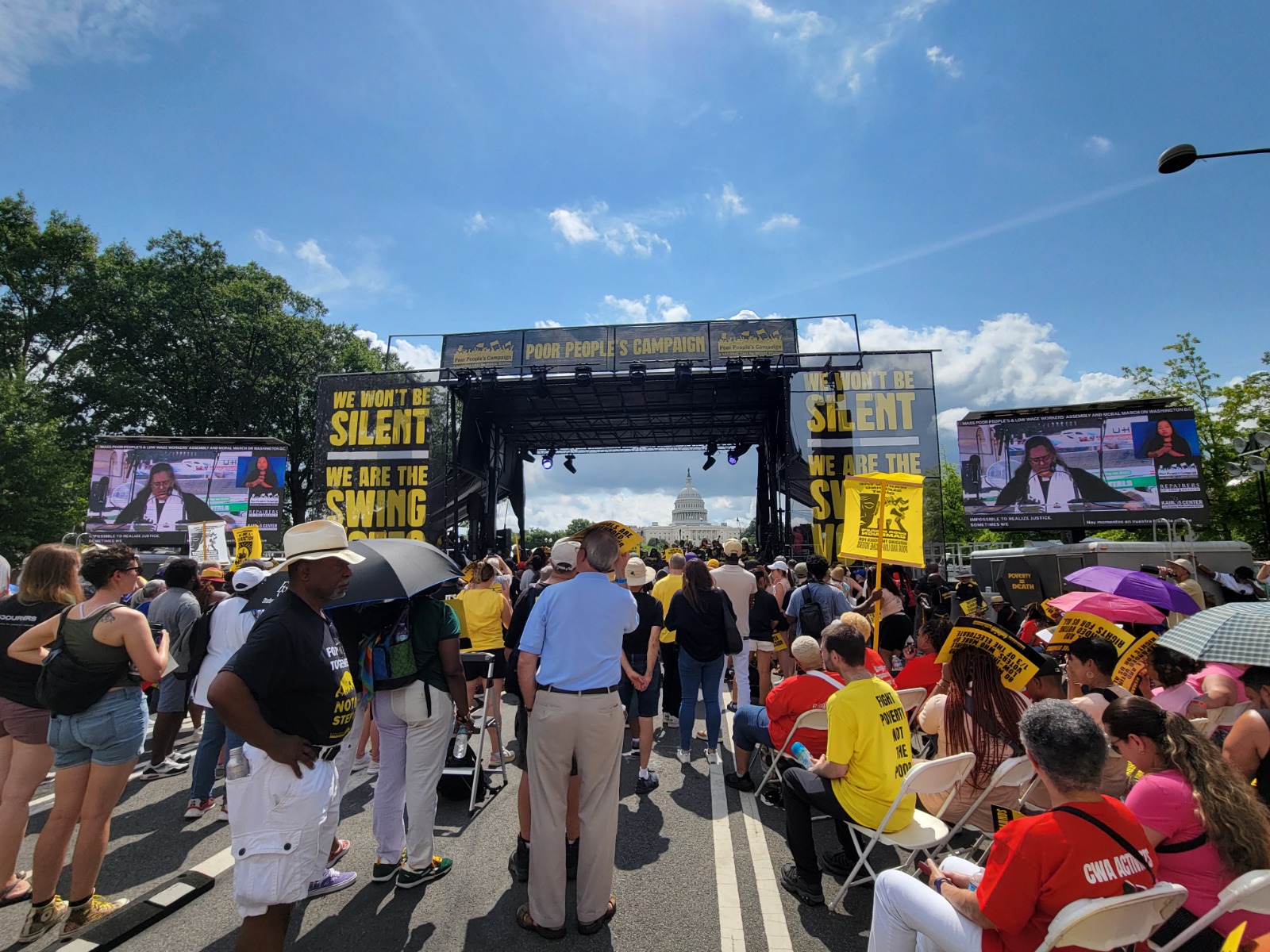By Carmen Rodríguez
140 million people live below the poverty level in the United States. Latinxs, and particularly Latina workers, are among the most exploited and lowest paid. The Poor People’s Campaign mobilizes these groups on behalf of structural change and the interests of marginalized people in the richest country of the world.
Thousands of workers, activists, community and religious leaders gathered in Washington DC on June 29th to demand action focused on eradicating poverty, low wages, lack of access to health care and clean water in the United States during the Poor People’s Campaign.

The Poor People’s Campaign is a national action led by more than a dozen social organizations and union members to promote citizen participation on behalf of the needs of more than 140 million people living below poverty levels and/or with low and unfair wages. According to the organizers, this activity also serves to promote the participation of the 15 million voters living in poverty in the upcoming November elections.
The Poor People’s Campaign reports that at least 800 people die every day in the United States due to poverty and inequality of resources’ distribution. The most affected are the indigenous, African-American and Latino communities. The organizers also point out that one of the main obstacles to the participation of the poor in electoral processes is the lack of access to essential information for this group so they are aware that their demands must be taken to the ballot box.
During the action, 17 points of the agenda of the poor were developed, including discussions on living wages, racism, poverty and inequality, unjustified arrests and imprisonment, environmental devastation and damage, militarization and economic war, among others.
According to the Federal Poverty Guidelines, a family living below poverty levels has an income of less than $24,600 per year, and a single person under 65 years living in poverty has an income of $12,060 per year. The latest Bureau of Labor Statistics report, released on July 5th indicates that unemployment rose by one-tenth to 4%, the highest rate since 2022.

The Poor People’s Campaign promotes and demands that politicians and members of local and federal governments create public policies focused on solutions to these problems.
The demands
The Poor People’s Campaign focuses its demands on actions to activate citizen participation in electoral processes, and that those living below poverty levels be considered when creating or reforming laws to eradicate systemic racism and inequality. Among the demands, the Campaign asks for the opening of an electoral roll to allow the registration of 17 and 18 year-olds who are unable to participate or cast their vote today.
The Campaign also calls for the establishment of voting rights and representation for marginalized groups. They demand an immigration reform that allows immigrants who have lived in the country for decades to be considered citizens and that federal and state actions are implemented to eliminate the wage gap, unfair wages and labor practices, as well as wage adjustments and rules for employers to allow and facilitate employees to unionize.
On the environment and climate change, the demands focus on actions to enable and facilitate the development and use of clean energy. In addition, they call for greater public investment in a water system that ensures all households have access to safe drinking water and the protection of indigenous lands.
On wars and the economy, the Campaign demands that the U.S. stop funding wars and militarizing foreign regions ahead of social investments, in order to eradicate poverty and protect all who live in the country.
“Low-wage people suffer every day to make ends meet and die from poverty, the fourth leading cause of death in the United States. Policies ensure that the rich get richer, while the poor have to fight for their income,” said Trina Brow, one of the attendees.
The Poor People’s Campaign called on people living in poverty in the United States to participate in the November elections, because “then, we can demand that politicians take action to protect us, to stop ignoring us.”
Negative impact on the population
Pastor William J. Barber II, one of the main speakers, pointed out that in the face of the deaths caused by the lack of access to health care –due to poverty–, society is silent.
“No one talks about this political genocide. Today we are here to remember all those who die because of poverty and we want a resurrection and the power of our votes,” he stressed.
According to Rev. Wayne Wilhelm, third president of the Poor People’s Campaign, poverty is caused by those who make policy “that’s why we have to demand that these people fight poverty, that they stop being silent.”
According to union members, one of the groups of workers most affected by local and anti-immigrant policies are agricultural workers, impacted by rules decided by the interests of corporations and employers before the protection of human rights. Last May, Florida Governor, Ron De Santis passed HB433, which prevents regulations for employers to create special protections for workers during the extreme heat season.
According to the Florida organization We Count, every year during the heat season, a farm worker dies from heat stroke and the lack of local regulation, forcing employers to take preventive measures during the heat waves that affect the state.

“Agricultural workers suffer due to poverty and are the most impacted by policies and politicians who don’t care about life or human rights. Not only do these workers face unfair working conditions, they also have to deal with a lack of access to basic resources,” said Marta Gabriel.
Latina workers, among the hardest affected
The Bureau of Labor Statistics reports the creation of 206,000 new jobs in June 2024 While the data is encouraging and indicates, according to experts, that the U.S. economy remains “robust,” low and unfair wages continue to affect thousands of families in the country.
Among those most affected by poverty, low wages, lack of job opportunities, lack of access to health care and education, and immigration policies continue to be Latinxs. One in six Latino families live below poverty levels and among Latino workers, women are the most affected and the most vulnerable. Generally, latina women are employed in jobs that offer few benefits and almost no protection of their labor rights.
In addition, Latina workers, who represent 16% of the female workforce at 12 million, face more employment and career obstacles related to their origin and gender. Latinas also face the widest wage gap in the workplace due to discrimination based on their origin and gender.
A Latina worker earns on average 0.52 compared to 1.00 for a non-Hispanic white male. This has a direct impact especially in families where the woman is the head and provider of the household. Figures from the Labor Council for Latin American Advancement (LCLAA) indicate that this wage gap affecting Latina workers is responsible for the loss of $1,200,000 over the last 40 years in the careers of Latinas.
“That difference in salary translates into a negative impact for the families of these women and it is greater when the family depends solely on the income of the Latina women. The children of these women have no quality education, no access to health care or decent food,” explained Ana Rivera.
The Poor People’s Campaign is calling for open discussions between politicians, communities, organizations and workers to find real solutions to these problems that affect the well-being and impede the development of affected families.
In addition, it opens up critical conversations about voter suppression and the obstacles that impede citizen participation in the electoral process.
Carmen Rodríguez is a journalist and news correspondent in the U.S. for Latin America with 13 years of experience in multimedia journalism, communications and news content production. Specializes in U.S. Foreign Policy with a focus on Central America and Migration.



